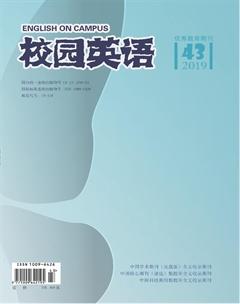An interpretation of kisses in This Side of Paradise
INTRODUCTION
Francis Scott Key Fitzgerald is widely regarded as the most notable member of the “Lost Generation”. His first novel, This side of paradise earned him a great reputation with its semi-autobiographic elements. It depicts the growing process of Amory, commencing from his school life in St. Regis to Princeton University, with main focus on frustration of love and changes in his personality. At the end of the novel, Amory develops a sense of regret for his lost youth in retrospect, vividly revealing the general image of youth in “The Jazz Age”.
So far, no single scholar has done research on a specific image captured in the novel. Kisses, as the representative image of love existing between lovers, hold the power to convey humans emotions and reflect peoples views on love affairs. Therefore, this thesis will mainly discuss it.
MALE S EGOTISM AND VANITY
In this novel, the main character is Amory, who was described as a charming man; however, he never treat kisses, or rather, love seriously. When he first met his first-love Isabelle, they were genuine to each other and shared the equal status. “They glided the roads about Princeton and talked from the surface of their hearts ... Amory felt strangely ingenuous and made no attempt to kiss her.”(Fitzgerald 65) Nevertheless, the first time he kissed this girl, the emotion deriving from kisses is not love, but mere egotism and vanity. “She ran into them, and on that half-minute, as their lips first touched, rested the high point of vanity, the crest of his young egotism.”(Fitzgerald 66) The kiss with beautiful Isabelle satisfied his egotism that he was a charming man and deserved to be accompanied and loved by a beauty. Even when he clearly realized that he had no affection for Isabelle, he still wanted to kiss her. “He became aware that he had not an ounce of real affection for Isabelle ... He wanted to kiss her, kiss her a lot, because then he knew he could leave in the morning and not care. On the contrary, if he didnt kiss her, it would worry him.” (Fitzgerald 68) The depiction of his inner world reveals his immaturity and hypocrisy, showing his indifferent attitude to Isabelle, but passionate desire for kisses to satisfy himself. “It would interfere vaguely with his idea of himself as a conqueror. It wasnt dignified to come off second best, pleading, with a doughty warrior like Isabelle.”(Fitzgerald 68) Amory imagined himself to be a conqueror in the battle against Isabelle and the kisses were the judgement of winning. He was merely a superficial playboy who took kisses lightly, and spoke out love without authentic emotions. Even several years later, Amory still possessed the feature of egotism. “Amory had loved himself in Eleanor.”(Fitzgerald 180) The so-called love to Eleanor was not just a reflection of himself and the fascination for his youth.
To conclude, the kiss with beauties made Amory feel secure of truly having the ownership of them and earned him the satisfied feeling. Therefore, the desire for kisses reflected that the youth pursued the golden dreams of success in love affairs and desperately tried to find his own identification, revealing the ubiquitous phenomenon in “Jazz Age” that youth were restless and boldly strive for fame, prestige, money and beautiful girls.
FEMALES AWAKENINGS
It is easy to catch a glimpse of females changing opinions towards kisses and this reflected their conscious awakenings. Women in the Victorian times were conservative towards kisses. “Servant-girls are that way...They are kissed first and proposed to afterward.”(Fitzgerald 43) Not only mothers, some men were also indulged in the male dominance love relationships. Gillespie, one of Rosalinds lovers, thought that “after a girl was kissed, she was won.”(Fitzgerald 133) However, Rosalind asserted that those days had passed: “There used to be two kinds of kisses: First when girls were kissed and deserted; second, when they were engaged. Now theres a third kind, where the man is kissed and deserted.”(Fitzgerald 134) It can be told that the position of men and women in a relationship was not equal in the nineteenth century with men superior to women. However, changes took place in the twentieth century, when female gradually gained the equal position in a relationship and had the right to end an unsuitable one, exerting their will to win the respect and equality.
The main reason for this was the increase in females social status. The 1920s witnessed the prosperity in economy and feminism in America. Due to the World War I, a large number of men were involved in the war, which provided chances for women to be employed. The juxtaposition of paid jobs and salary allowed women to gain economic independence, and this was the necessity for them to upgrade their social status.
CONCLUSION
On one hand, this essay focuses on males vanity and egotism with detailed description of the heros inner world. On the other hand, it captures females conscious awakenings through analyzing their attitudes towards kisses and discovers reasons. The shockingly different attitudes towards kisses revealed the breakdown of previously out-of-date beliefs and moral requirements.
References:
[1]Fitzgerald, F. Scott. This Side of Paradise. New York: Dover Publication Inc,1996.
[2]Hendriksen, Jack. This Side of Paradise as a Buildungsroman. New York: Peter Lang Publishing Inc, 1993.
[3]Hindus, Milton F. F. Scott Fitzgerald: An introduction and Interpretation. New York: Holt, Rinehart & Winston, 1968.
[4]Hoffman, F.J.The Twenties:American Writing in the Post-war Decade. New York: Viking Press, 1955.
[6]Kahn, Sy. This Side of Paradise: The pageantry of Disillusion. The Midwest Quarterly, 1966.
【作者簡介】唐恬悦,厦门大学。

